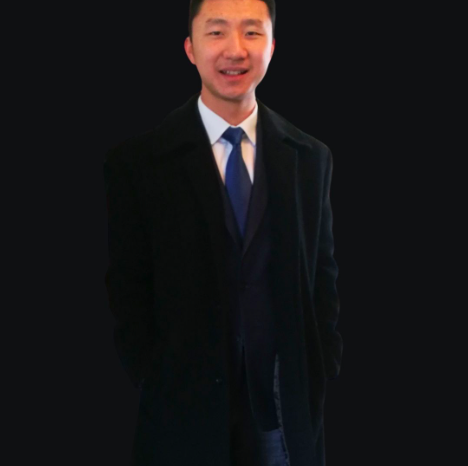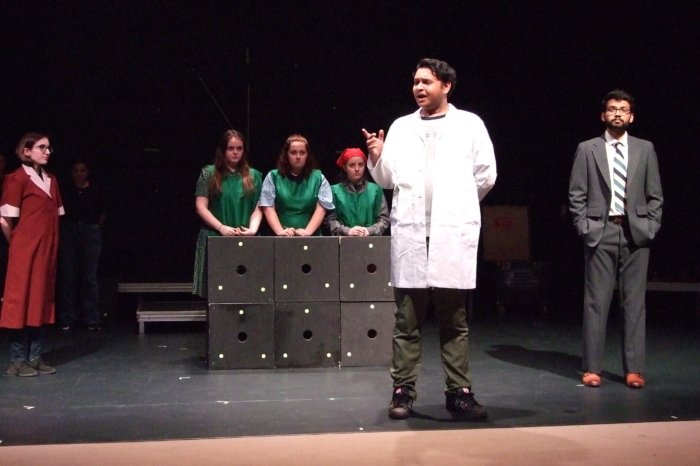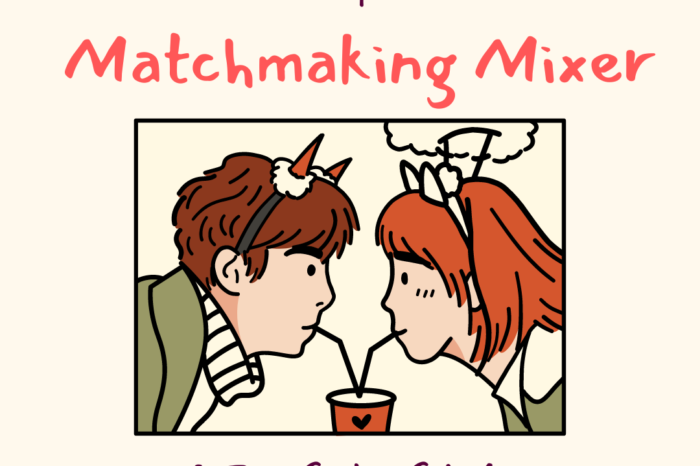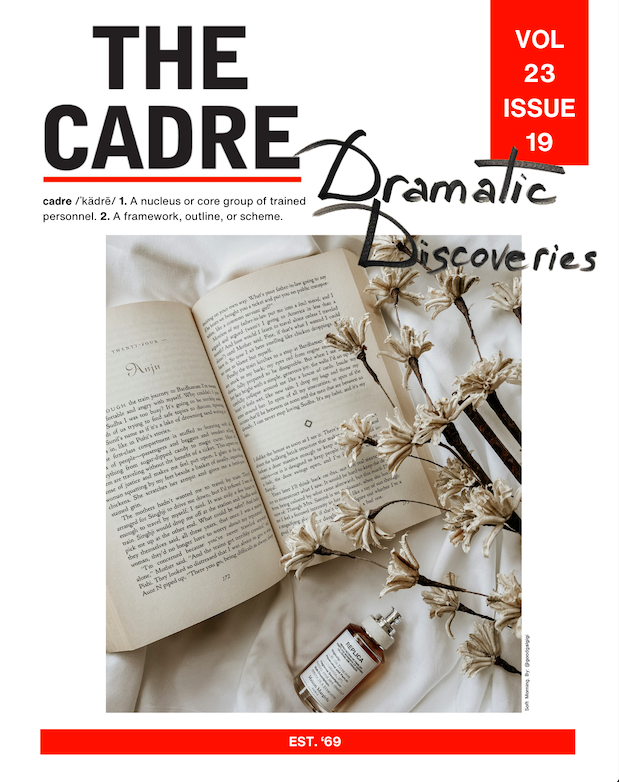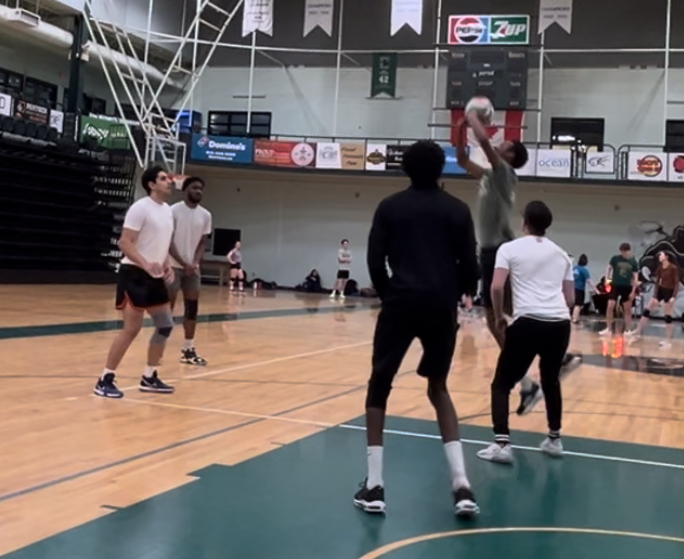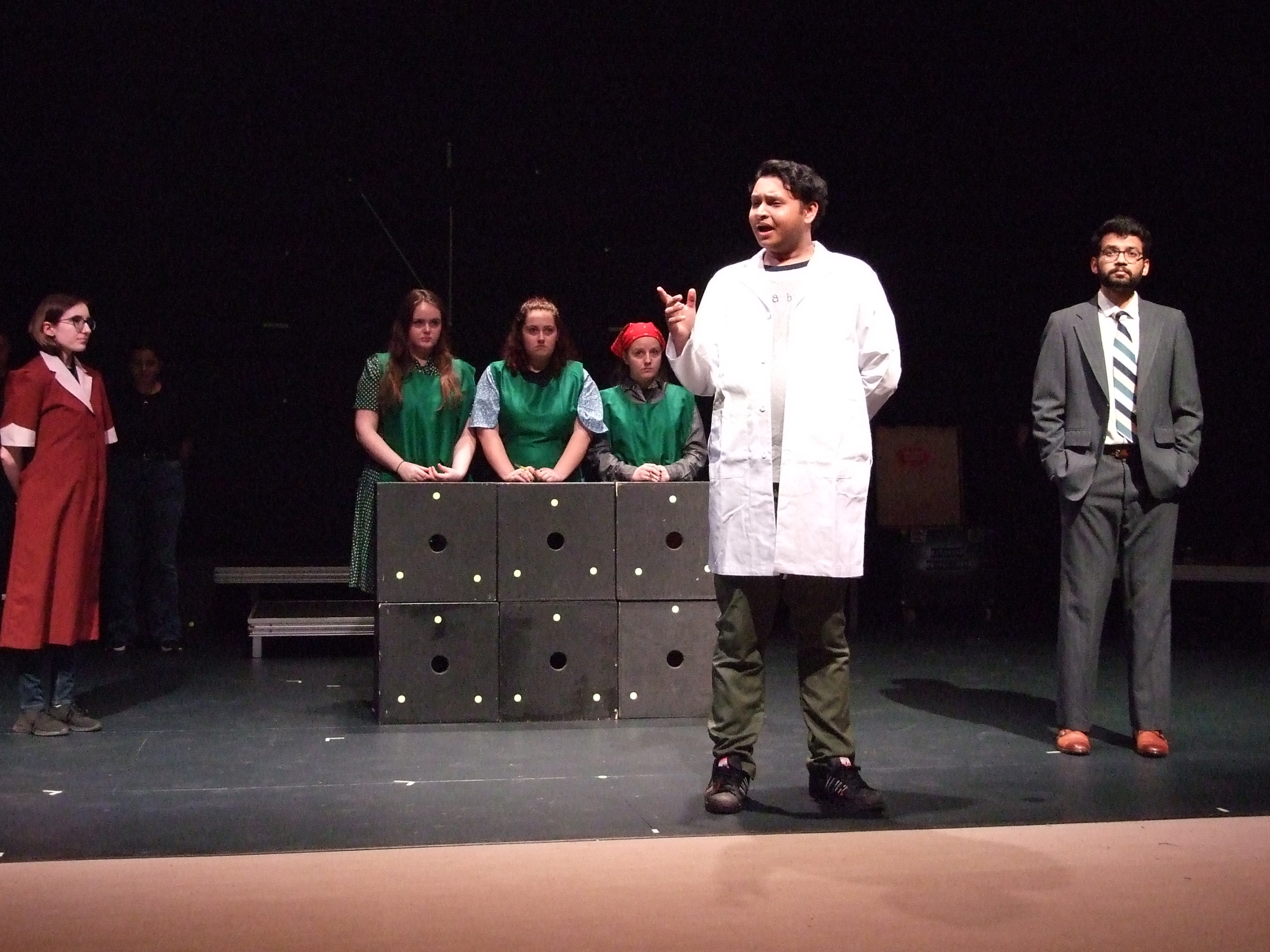Big Karma: The Quiet Give and Take of Marijuana
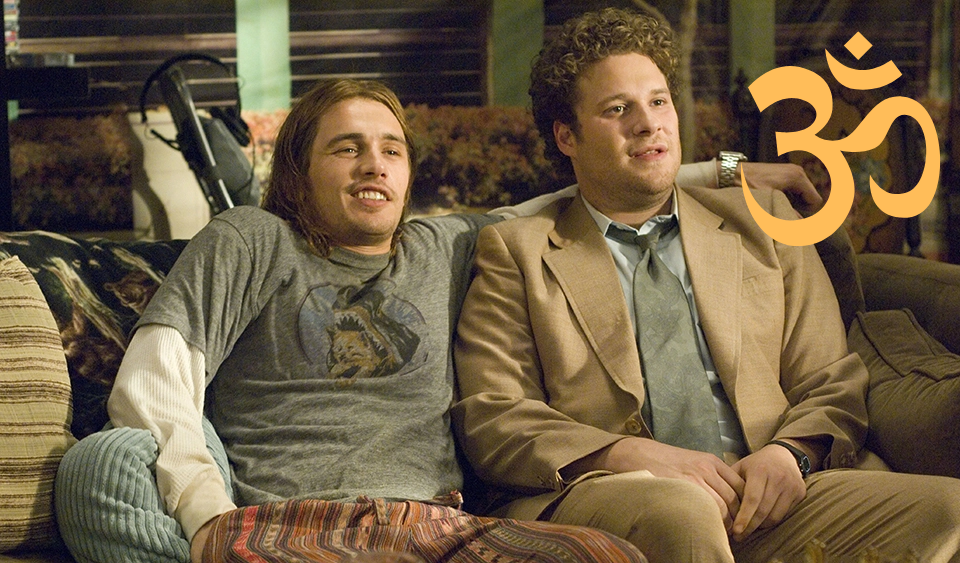
Don’t run from yourself. Find what you are. No, don’t find, just know what you are. Don’t hide from yourself, because when you do, you’ve got to lie to yourself, and to mask that lie, you’ve got to lie to other people too. And now you are just pretending to be someone you are not. It doesn’t matter if people don’t accept you. You’re just in the wrong group. Just go out. And love yourself, because if you don’t, who will?
– Sanket Nepal
Saturday morning, venturing out into the cold, joining the rush of people at Tim Horton’s. Later that night, enjoying a couple of bevies at Hunter’s Ale House. Next morning, coffee, maybe an Advil for the headache. As the day rolls by, and night falls, a drop of melatonin. What do you notice? A pretty typical pattern of consumption for a UPEI student? Caffeine, alcohol, ibuprofen, and melatonin by no means make for some tripped-out bender of a weekend. But the less obvious part is why more people fail to realize that preachers of the cautionary tale, “don’t do drugs,†are about as useless as a one-toothed beaver in a petrified forest.
My mom is the salt of the earth, and I love her for it. She, like any mom, warned me against using drugs from the time I was old enough to wonder openly why people live on the street. In her loving concern, she simply wants her son to be smart and safe. I can’t knock anybody, let alone my own mother, for not being logically consistent in a conversation about drugs, especially when the broader society takes words like education and experimentation and drowns them out with the much louder and scarier, prevention and rehabilitation. The better-safe-than-sorry approach does the trick for a mother but is lazy from an education system, namely when Mothers Against Drunk Driving are invited to scare school kids straight with their “No drugs. No alcohol. No victims.†motto. Of course, a zero-tolerance rule must apply behind the wheel, but almost everywhere else, it only feeds into a skewed perception of drugs, tempting young people to grab and abuse the forbidden fruit.
“It’s like re-charging your phone again, but you are going to be stuck at 1%,†Sanket says in regard to building a high tolerance for marijuana. There was a time when he used to smoke it every day, at almost every hour, for two years, alienating him from his friends.
“When I’m in a group, I’m always spectating, but no voice in me… you feel like something is wrong with you… Theo Von said, when people smoke weed, they’re going to be like weed. A plant. They are not going to do anything, just sit there, maybe grow, maybe not. I started being a fucking plant, and there was no growth in me,†Sanket says. He has firsthand experience of using weed as a gateway drug, too.
“Weed [lets you] know what high means. Then you try another thing, and the thing is different. Nobody does DMT and says, ‘I’ve never done weed.’ When you are hooked on high, the feeling, the sensation of not being sober, it can destroy your life.â€
But why the desire to get high? Well, life is hard. We all have our reasons. To Sanket, “If we did not live in a feel-good society, we would all be miserable, wouldn’t we?†So it seems—the pursuit of happiness shrinks to an asymptote when temporary highs consistently numb the necessary suffering of an honest life.
For Sanket, finally waking up to the negative effects of weed was like, “going from Life sucks, but I don’t care, to Oh fuck, I wasted another day.†But perhaps weed is a teacher in this respect.
“Weed says, OK, I will give you the most chill life for a moment and see what happens after that.â€
I asked Sanket, do you wish someone warned you? “No. Because it just happened. I wasn’t responsible enough. Living in the present and not thinking about the future.†For some people, weed seems to run its course. It did for me, too.
After using it recreationally at the end of high school (sorry, Mom) and for about a year after graduation, I stopped altogether. The high was pure fun, laughing hysterically with friends, trying to outdo one another with the most absurd shit like we were filming a comedy sketch show in front of a live studio audience. But then came the realization, through many a trial and error, that for every sublime mountain peak, there’s a vulture-laden valley. After each high, I felt a foggy low, distanced from the things that would normally excite me. Nobody told me it would be like this. But would it have been different for Sanket and me if our school systems integrated drug education inside health classes? Would we be less apt to experiment or come to the same conclusions? Until we try, only God knows.
I sat down with Sanket to talk about the pernicious nature of marijuana, its quiet side, the seedy parts we believe better out of sight and out of mind. Together we arrived at a spiritual station. Marijuana is a drug—it is what it is and does what it does, whether you call it good or bad or anything in between. Like an object, you must only judge it by your relationship with it. Marijuana gives you what you bring to it. You may take what you need, when you need it, and move on. “Don’t take it as water,” Sanket says. “Take it as a medicine.â€
On New Year’s Eve, to get a laugh out of his friends, Sanket insulted a passerby on the street. He later took some LSD and, through the ensuing state of reflection, realized a great lesson of humanity. “Oh, he is a human, too, like me. Let me treat him like I want to be treated… that’s Hinduism in a nutshell. If you treat someone badly, Karma will hit you. What goes around comes around, and comes around even harder.”
Lasting happiness might not be found anywhere, not least inside drug dependency. Sober or not, you can’t run from yourself. You will always catch up. As university students, we might be better off realizing that using a drug like marijuana is sometimes a reality but never the reality. Most of us need coffee to wake up, and that’s OK as long as we understand that a drug, like life, follows a fundamental (sometimes mysterious) principle of give and take. Call it Karma. Call it a hangover. Call it a fried bologna sandwich. The bottom line, put perfectly paradoxically by Sanket himself— “we don’t need anything to have fun or be happy except you, me, some tea, just talking and laughing.â€
BY JAKE MACCALLUM, EDITOR IN CHIEF
